By Lisa P.
I have mentioned before that testosterone gave me a very deep bass voice. So low, in fact, that for years I sang second bass in school and church choirs. I cannot deny that I love the vibrato (the low thrumming sound) created in my chest when I sing the lowest notes. So, living a bigendered life not only helps my wife deal with me, but also lets me still use an instrument that was made for me.
Yet, if there was one thing that always bothered me when presenting as a woman for years on end it was my inability and unwillingness to communicate with other people. I hated “outing” myself whenever I opened my mouth. Mind you that is a problem other members of this community don’t seem to have or worry about. If you are one of those lucky few who have a male voice in the higher range or if you approach your life (particularly your CD/TG life) with a devil-may-care attitude, then this essay may not be for you. I put our lovely and indomitable Kandi in both of those categories, by the way. I have spent time with her and see how comfortable she is using her natural voice in public. I am envious. Her approach works for her, and I hope her approach works for others of you as well.
My audience is for the unlucky ones, who are like me. I crossdressed regularly from an early age, with a particular emphasis on the period from age 35 to almost 60 when I had no facial hair. I went out in public frequently throughout the world (as in, more than half a dozen countries). During that period, I was “out and about” but I was as silent as a bug, avoiding verbal interactions with others as if I had the plague.
Not anymore. I thought I would tell you my story, as it may give you hope or show you a path you may wish to take. I do not discuss this issue lightly. Some people may tell me that I am a unicorn and ought not raise false hopes. I wouldn’t tell you my story, however, if I didn’t think there might be value in it to someone out there. As with most of us, my journey started with a series of questions I asked myself. Could I develop a credible female voice? Would I need to go to speech therapy or was it possible to teach myself? Could I develop a voice that I could slip in and out of (instead of “surgically” changing my voice for good)? Each of these questions was important to me. First, I wanted a voice that sounded genuinely feminine, rather than a forced falsetto or whiney whisper. Second, I wanted to know if an expert would be required, as going to an expert would cost both time and money as well as require significant legwork to locate someone willing to help me. Third, I wanted to make sure my voice could be “on demand,” as I knew that my wife would never accept me with a feminine voice and my work life would be similarly limiting.
My search for answers began on the Internet, and I was soon led to a series of different YouTubers who claimed to have trained their voices themselves. Some had voices that I considered still somewhat male in sound. Some had voices that they claimed required 100% time-commitment (that is, you could never go back). Some required the use of special sound equipment. Frankly, they were all over the map. But I settled on TransVoiceLessons on YouTube. At the same time, I invested in a couple free iPhone apps to help me “test” what I was doing with my voice. Most often I use (and I still use, to evaluate myself on occasion) an App called “Voice Tools.” It allows a person to analyze their pitch and tone to see where their voice is on the female/androgynous/male spectrum. I also use an App called VoicePitchAnalyzer, but I have only used it sparingly, as the App is designed to have you purchase the Premium version. It will, however, let you record a text and test where you fall in terms of pitch. I also recorded Voice Memos using my iPhone. Those recordings allowed me to listen critically to my speaking voice. Finally, I made a habit of calling female-oriented clothing stores on the telephone and asking them their operating hours. If the person on the other end said “sir,” then it was a mark against my voice; if they said “ma’am.” then it was a mark in favor of my voice. I should add that I never concluded that a “ma’am” automatically meant that my voice passed muster, because often the person answering the telephone at these types of stores starts from the assumption that a woman is calling. Nevertheless, it was a positive step in the right direction when it occurred.
I created my own series of exercises, moving my voice up and down the scales and counting forwards and backwards. I performed these exercises almost exclusively in the shower at first, but eventually when I was walking down the street by myself I would try them out. If it isn’t obvious, a shower is an enclosed space, and the sound bounces around, whereas outdoors is an open space, and the sound floats off into the air. I found that the combination of these two ways of listening to myself helped me train my ear. One other technique which I sometimes used was to listen to a woman celebrity speak who had a low-pitched voice, and I would try to mimic her sounds.
Now for the depressing thought for anyone itching to develop a new voice quickly. I worked on my voice for three years. You read that correctly. During the first couple of years, I was doing many exercises with no perceived progress. I kept at it, spending about 10-15 minutes per day (most days) trying to figure out how to move my voice into a higher pitch and to change the resonance away from my chest so that it was closer to my nasal cavity. Something I learned along the way is that it helped to smile as I tried out the different sounds. That technique helped me, I believe, because the smile changed the way that I created sounds in my voice box.
Then, one day, as I was walking along a busy London pavement, a miracle happened. I “heard” Lisa speaking in her own voice. I must admit that my joy was short lived; I quickly lost that voice. But now I knew Lisa’s voice was out there to be found. A couple of weeks later I found her again. Gradually the time between finding the voice and losing the voice narrowed considerably. Within three or four months I discovered that I could “find” my Lisa voice whenever I needed to do so.
During this period, I was also actively listening to female voice patterns (from the most obvious – the tendency to raise your voice at the end of sentences – to the less obvious, like having more “gaps” between words and elongating more vowels so that the speech is more emotive). As I worked on my voice I tried to incorporate these voice patterns into my own speech.
Eventually I started to develop confidence in my new voice. I began to use it when I was talking to civilians in stores. They reacted well, which gave me additional confidence. I began to have longer conversation on the telephone, which also built my confidence. Finally, a few folks (both cisgender and transgender) told me that my voice “passed” (for what that’s worth). The more I used my voice, the less strain it caused and the more natural it felt.
For a long time (probably at least two to three years), my new voice didn’t exactly sound like I thought it should when I spoke with it. Our own voice never sounds the name to us as it does toothers, because we hear ourselves not only as the sound of our voice bounces back to our ears but also when the bones in our head convey the sound directly to our inner ear. It helped me to understand that fact; it also helped to listen to the recordings I was making, which provided a better measure of my sound. A second note is that my voice still has a “husky” quality to it. I am told, however, that it is a feminine husky, which is not off-putting for someone in her mid-sixties, since older women sound huskier.
The results for me have been nothing short of magical. Suddenly, I could get involved with groups of women without outing myself every time I opened my mouth. My favorite talking environment today is my book club. I make comments throughout the evening. At the end, about ten of us go to a wine bar to talk more. Thus, I find myself talking as myself for up to two hours at a time. The result is my social interactions with cisgender women have increased dramatically. I enjoy long conversations with other women without thinking about the sound coming out of my mouth.
I speak daily in my Lisa voice these days, so I could give you a considerable number of recent examples of the difference my voice has made in my life. But I will spare you such details and relate only one recent fun example. I enjoy swimming in alpine lakes (I know – it is an acquired taste). On a recent hike I wore my bathing suit under my clothes so that I was “bathing ready.” I took an unfamiliar trail (that’s us – the ones who take the trails less traveled!), and I realized a family of four (mom, teenage daughter and two teenage boys) were following me. As the path became questionable, I called back to them to say, “you should know that it is the blind leading the blind here!” The mom laughed and replied, “we were following you because you looked like you knew where you were going,” to which I said, “my theory is to do everything with purpose, even when you are wrong!” Finally, I knew that I had seriously misled them, so I again called back to them and told them they should backtrack and that I could see an uncomplicated way for them to get to the main path. Notice that in each case I “called” (yelled) to them, which was necessary because they were one hundred feet behind and below me and we were out of doors. The point is that Lisa can yell and make people laugh. I ended up reaching the lake before them, followed by the teenage girl. I said to her, “just think, someday when you are 66 years old, you can still do what I do, although you may not want to look like I do.” That got me another laugh. When the rest of the family joined her, I moved to a rock separated by some bushes so I could do my “swimming thing.” The air temperature was about 48 degrees Fahrenheit (we were at 11,500 feet in altitude), so I knew no one else would be taking a dip. But I wanted a bit of solitude. In these situations, I wear a bikini because they dry quickly, and you can change in and out of one part of the suit at a time – which is helpful for a wilderness change). I had just gotten into the lake when the family began their descent, and they could see me doing my crazy swim. So, I called out, “please avert your eyes – there is an old lady in a bikini, and I wouldn’t want you to burn your eyes!” The mom laughed and said, “you’re good – I can’t believe you are really swimming!” I enjoyed the verbal exchanges with this family, which enhanced my outing and connected me socially, albeit with people I had never met before. Even for someone who enjoys her solitude, my voice allows me to break my previously self-created silence and experience life.
In the end, I do not want anyone to have the same frame of mind as I had for so many years. Never think that you need to avoid social contact until you develop a female voice. It would be better to be like Kandi (although she does have a soft feminine way of speaking) and not be too concerned with how you sound. But if you very much want to develop a passable female voice, I believe it is possible for almost everyone. I have always suspected that my musical training was helpful in retraining my voice box. Keep that in mind if you choose to go down this path and consider working on your singing voice if you have never done that. Also, don’t avoid a trained speech therapist just because I decided to go it alone. Many people have found their exercises and support to be invaluable.
Regardless of how you approach this topic, make your voice heard. Be yourself and be proud, whether you speak in a faint voice, a high voice, a soft voice, or a loud voice. I wish I had used that prescription and interacted with society better before I became satisfied with the quality of my feminine speech. I lost opportunities to train the world on our CD/TG identity during my 25+ years of silence. Please don’t be like me in that respect.


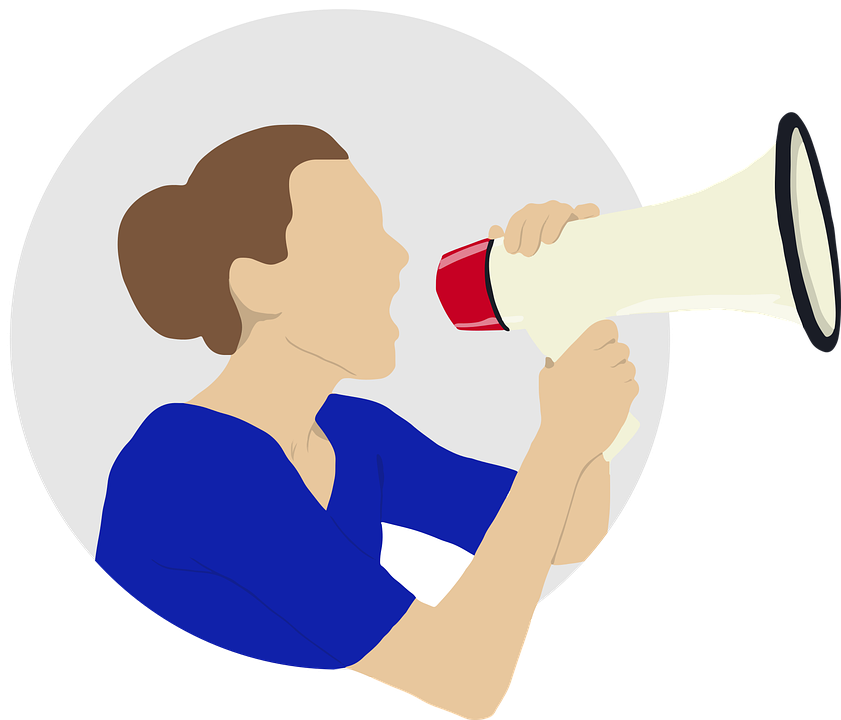
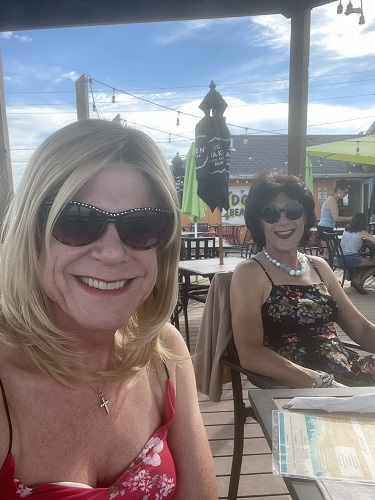

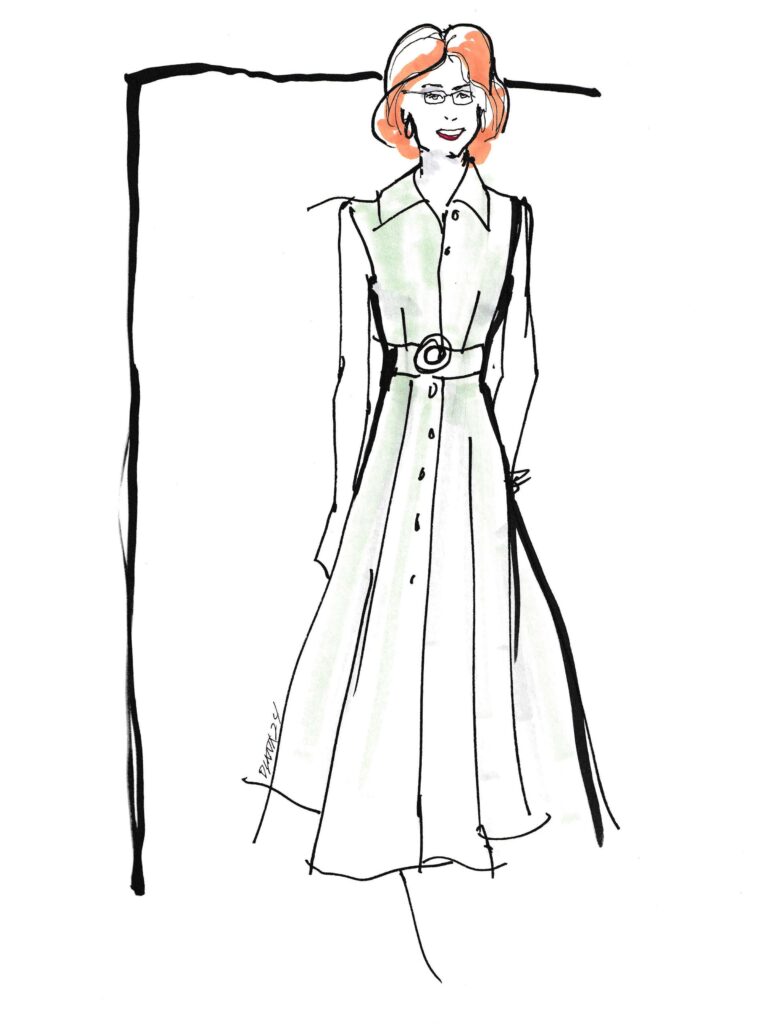

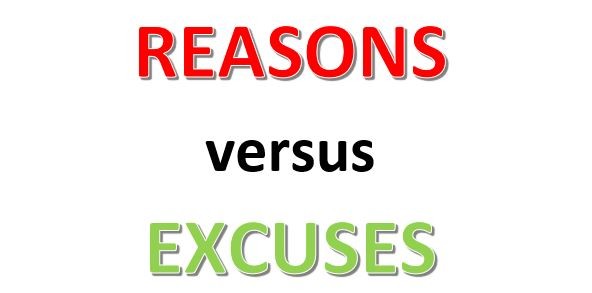
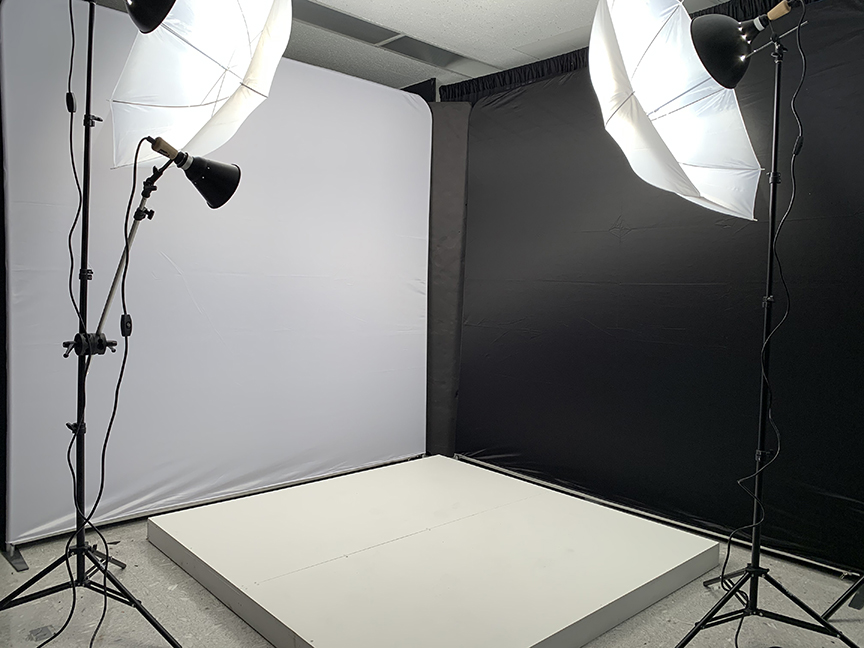



15 Responses
Gosh, Lisa, that was a fascinating read – there’s nothing like a deep dive (although I definitely won’t be doing a deep dive into 48ºF waters – that’s 9ºC which sounds even colder!).
I think we all realise that our voice is our Achilles heel – as long as we can transform with a basic level of competence, most will give us the benefit of any doubt they may have. Open our mouths, though, and the game’s up. I have to say that I admire your dedication – and it’s quite apparent that that’s what it takes as there’s no quick fix. Learning to apply makeup seems like a walk in the park in comparison.
To me, though, you saved the best till last with ‘Regardless of how you approach this topic, make your voice heard. Be yourself and be proud, whether you speak in a faint voice, a high voice, a soft voice, or a loud voice.’ The important message that I learned was to stop thinking ‘what if someone realises I’m a guy’ and instead think ‘so what if someone realises I’m a guy’. You’ve clearly taken things to the next level and what’s nice is to see how it’s opened doors for you (doors that you clearly love being able to walk through).
Amanda,
You are always quick to provide helpful comments and feedback. Your comment about the temperature of the water made me think again about how much I enjoyed swimming at the Ladies Pond at Hempstead Heath. One year in December when I was there the water temperature and the outside temperature were both 4°. Let’s just say that was an In-and-Out day for me! But I didn’t let the low temperature stop me. I think it is helpful to have the water temperature equal to the outside air temperature. If you can allow your body to adjust to the air temperature, then the water becomes easier. At that temperature, a warm shower afterwards surely is a necessity.
Thank you for reading my post and for highlighting the most important part.
Lisa.
Lisa – my quickness in response is due in no small part to the 5-8 hour time advantage I have over the rest of you.
And I have to confess that I thought of you as I immersed myself in 48º water today – except in my case it was my 48ºC bath!
Amanda,
You love baths too! I especially love the bubbly ones!
Girls just wanna have fun!
Lisa
Lisa,
What a great post. I know you a little bit, and this writing gives me a lot more insight into the wonderful person that you are.
Over the years I have thought about my voice and how it is received while expressing my feminine side. I tried softening it, raising it and trying a cadence that I thought was how a woman would speak. But it all seemed phoney and not being true to myself.
I think my natural voice is not too low or too high. So instead of trying to alter the way I speak as my female self, I just use my only voice no matter what the situation.
OR, maybe I am just too lazy to learn a new voice.
It doesn’t bother me what people think. I do engage in conversations with anyone while I am “looking pretty” and no one seems surprised or offended. My look and voice apparently match others expectations.
I applaud your hard work in developing two speech patterns. I am impressed with what you have become. Very well done.
Thank you for telling your story. I have always been very impressed by you. You are a tremendous example for our TG community.
Your dear friend.
Jocelyn
My dear friend, Joycelyn,
Your words are very kind. (like you!).
You are doing things the right way, for sure, by not worrying too much about what other people think. I’m afraid it remains my Achilles heel. A cisgender girlfriend recently asked me how I was doing, and I had to confess to her that my journal is filled with entries where I comment on acceptance of those around me. Those entries indicate that I am still seeking affirmation too often. To emphasize the point, I will say to everyone who reads this, “be more like Joycelyn!”
Continue to live your joy.
Lisa
Lisa,
O-o-o-o-o, I think you should be careful recommending people should be more like Jocelyn. Not worrying what others think will get me in trouble sometimes.
As we all get older, we tend to be more self assured, rightly or wrongly. It is freeing though. Wait until you’re my age.
You don’t need to seek affirmation from me, I’m already a very big fan of yours. Keep being the beautiful woman that you are.
Love,
Jocelyn
Jocelyn,
I hope you liked me changing your name to JOYCELYN. Joy abounds when Jocelyn is around. At least that’s what Kandi says!😉
Lisa
Lisa,
Hey, call me what you want. I do enjoy having fun. Sometimes even at my own expense.
Warn Kandi that I’m coming to get her in February!
J
Lisa,
I’ve finally come to the conclusion that the thing I really desire is a natural female voice , so I can coverse , laugh , giggle and sing . BUT !!
Like you I was gifted with a good shot of early T , during our school , interhouse music competitions I was told to mime because of the low growling noise .
I envy you with your vocal training pesistence sadly I know it won’t work for me now in my 70s . The first problem is not knowing exactly what I sound like , while at school my hearing was damaged by not having adequate hearing protection while taking part in shooting competions which resulted in tinitus . Now I have to wear hearing aids to balance my hearing and reduce the tinitus , so the problem I have is not knowing what my voice sounds like without aids and with them my voice I hear is an enhanced version of it . The other problem is having a stomach reflux problem my vocal cords are damaged so I have a limited vocal range which means it would be hard if not impossible to train it .
Saying all this has it been a problem ? All I can do is raise my voice and speak softer and after six years it appears to work . The problem I do have is being misgendered on the phone at times , all I can do is politely correct them , I do try and avoid making too many phone calls to people I don’t know .
Much of this comes down to the immediate assessment , if people see enough female telltales they often disregard secondary ones . I really haven’t found it a barrier , I have so many friends now and take part many groups where I have to openly speak to them as a group . At all cost try not to put yourself in a position where you have to shout
The one problem I experienced recently was when I had a cold , it’s far more difficult not to sound male when you cough or sneeze .
As for low water temperatures , my school had an unheated outdoor swimming pool , SUMMER TERM , YOU WILL SWIM !!!. Often when we arrived at the pool the temperature would be barely making the mid 50s (F) . Our PE teacher was always well prepared , the first one to claim they had forgotten their swimming trunks had to use a spare pair of his after that the others swam in their underpants
Teresa,
You add such wonderful colour commentary! Thank you for your naked honesty (hah!)
I am just so pleased that you haven’t allowed your physical limitations to stop you from enjoying your life. I believe that is the ultimate message of so much of that we read and write on this website.
Thank you again for being such an active part of our community (and always adding a dimension or two not shared or experienced by anyone else).
Lisa
Lisa,
Ah the voice, the last frontier. I must admit that I haven’t thought much about it. In my current occupation I speak for hours to groups of 50 or more, so I am used to a loud and strong voice without shouting. I know I can low the strength, but I have not needed a softer voice. I like your ‘advice’ to move the resonance away from your chest to closer to your nasal cavity. This is something I’ll try.
As to cold water swimming. Our ocean might get up to 60 F (15.5 C) at the peak of summer. Wetsuits were invented here. I have swum in high elevation lakes filled with snowmelt many times. We had a rule at my last house, On New Year’s Day, you had to swim across our pool before you could get in the hot tube. It would be under 40 F (4 C) and the hot tube would be over 100 F (37 C). Going from the hot tube to a lap or two was no problem.
Cali
Cali,
I love your family “rule.” If you want to be a member of the tough broads club, you must start with the 4 degrees! The other way around is for the men!!
Thank you for your wonderful comment.
Lisa
A bit cheeky to add a comment to my own post, but I thought of something after reading what others have said. Testosterone results in all sounds (including unintentional ones) being deeper. One thing I learned and which has helped me when I giggle or sneeze is to place a higher sound in my mouth before I open it. For example, if you feel a sneeze coming on, create a high sound in your mouth and the sneeze will come out higher. It doesn’t work for me every time, but often does. Same with my giggle.
Lisa,
I’ve tried that technique when feeling a sneeze coming on and bit my tongue in the process . I have managed to giggle quite well but tend to use hand gestures after watching women , sometimes they also gently touch the arm .